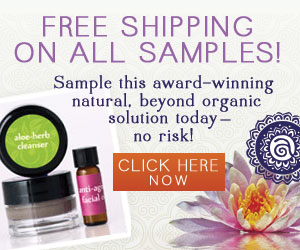Today I have a very special guest post from beautiful Selina who sent along a brilliant post for LPN to share with you. After you’ve had a little read, I’ll give you some of my thoughts. It’s all about the honey, hunny!
Guest Post from Selina Torres
 I often tell people I’m a foodie, but what I really mean is that I’ll eat nearly anything you put in front me. If it’s sweet, there’s a chance you may even lose a finger if you’re not quick enough. As a child, this voracious appetite for sweets often led to my mom giving me a teaspoon of honey to quiet me down when I was crying for cupcakes or ice cream. Now that I’m well into my twenties, I often find myself reaching for honey as a way to comfort myself when I’m feeling that pang for something loaded with refined sugars.
I often tell people I’m a foodie, but what I really mean is that I’ll eat nearly anything you put in front me. If it’s sweet, there’s a chance you may even lose a finger if you’re not quick enough. As a child, this voracious appetite for sweets often led to my mom giving me a teaspoon of honey to quiet me down when I was crying for cupcakes or ice cream. Now that I’m well into my twenties, I often find myself reaching for honey as a way to comfort myself when I’m feeling that pang for something loaded with refined sugars.
A few months back, I had a friend staying with me. When she observed my honey snacking, she remarked that I should be using it on my skin instead of putting it in my mouth. When I asked her to clarify, she told me how honey has been used for centuries for everything from healing wounds to embalming the dead. I was intrigued enough to do some research.
Turns out she wasn’t as crazy as she sounded.
When it comes to our skin, honey can work wonders. If you’re slightly apprehensive about spreading something sticky on your face, consider this…
Why is honey good for your beauty?
- Honey is a natural humectant, meaning it attracts and retains the moisture in the air, leaving your skin soft and supple.
- It contains antioxidants, which neutralize free radicals. This protects your skin from sun damage and improves the skin’s ability to rejuvenate and refresh itself.
- As a natural antibacterial, honey speeds the healing of infections and wounds, including acne.
- Honey is fantastic for those with sensitive skin because it’s an anti-irritant!
But wait, there’s more! All these properties mean honey is also perfect for hair care. Since it’s a moisturizer, honey relieves dry, itchy scalp and lets you say goodbye to dandruff. It also gives your tresses a shine so fabulous that it would turn the models in Pantene commercials absolutely green with envy.
Here’s a recipe for my favorite hair mask. It’s easy to make and leaves my hair feeling dreamy!
What you’ll need:
- 1 tbsp. Organic Coconut Oil
- 1 tbsp. Organic Raw Honey
- Shower Cap
Instructions:
- In a mixing bowl, combine coconut oil and honey.
- Transfer mixture into small saucepan and heat on low until just melted. Stir until smooth.
- Apply mixture to wet hair in sections.
- Wrap your hair into a bun, cover with shower cap and let the mask soak for 30-40 minutes.
- Wash hair using your regular shampoo and conditioner.
Just like this fabulous hair mask, you can mix honey with other common kitchen ingredients to create face masks as well. You can also use it straight out of the jar. Either way, your skin will thank you.
And when all else fails, you can totally eat it. Just saying…
LPN’s Honey Thoughts
Beyond any regular honey, I recommend eating a certain type of honey – Manuka Honey. The only type of honey that is actually approved for medical use. The healing power of honey has been used for centuries, so this is no new trick. Honey has natural antibacterial qualities and stimulates production of cells that help repair tissue. That being said, not all honey is created equal – the range in honey’s effectiveness can be vast, so it’s best to do a little research before investing in your next jar of the sweet stuff. Manuka honey is known to be the strongest when it comes to antibiotic power, but even then ranges in its efficacy.
How to pick your Manuka Honey
You might notice that when shopping for Manuka honey, that it is all made in New Zealand (because that’s where the manuka bush grows); however, you might also notice a number with the letters UMF. That stands for Unique Manuka Factor. You can find their official rankings online here. The UMF quality trademark ranges from UMF5 upwards depending on the level of the non-peroxide antibacterial activity in the honey:
- UMF5 to UMF9 are low activity levels
- UMF10 to UMF15 are useful levels
- UMF16 and over are superior levels with very high activity
UMF 10 = MGO 100
UMF 16 = MGO 250
UMF 20 = MGO 400
UMF 25 = MGO 550
What’s Manuka Honey Good For?
Aside from eating it, slathering it on your skin and putting it into a hair mask, manuka honey is also marketed for use in many other conditions. These include:
- Preventing and treating cancer
- Reducing high cholesterol
- Reducing systemic inflammation
- Treating diabetes
- Treating eye, ear & sinus infections
- Open wound & sore treatment
- Treating gastrointestinal problems
LPN’s Favourite Manuka Honey Brand
As of late, I’ve been pretty partial to Wedderspoon Raw Manuka honey. It is unpasturized, organic and ethical. Wedderspoon takes care of their bees (read about what they do differently here). You can find Wedderspoon online internationally as well as in loads of shops – all different types are available, and all equally wonderful. My most recent purchase was Premium Raw Manuka Active 16+ Honey.
I put it in my tea, raw food deserts and in my face masks. There is nothing this honey can’t do!
Selina Torres is a kickboxing, cupcake noshing, sparkle-loving beauty writer from Los Angeles. When she’s not stuffing her face with delicious snacks, she writes on behalf of Glisten, a lovely new skin care company.




















